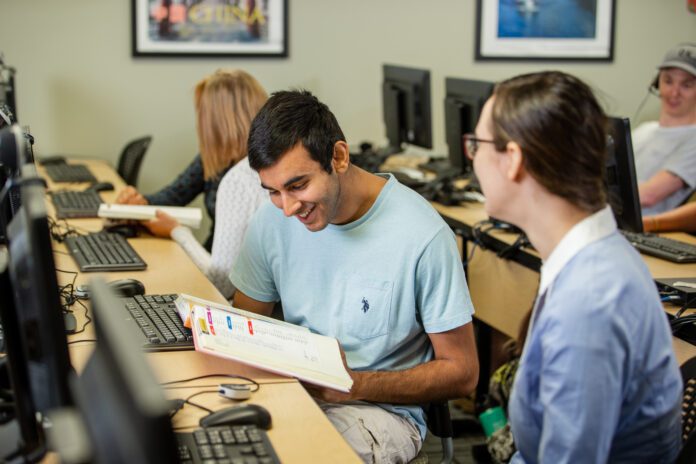
Enhanced travel experiences. Social opportunities. Personal enrichment and satisfaction. Greater opportunities for connection. Staving off memory loss and cognitive decline. These are just a few pros of learning a second language at an older age – and you can do it right here in Oklahoma.
“Learning a language is more than just learning words,” says Tina Peña, associate professor of Spanish at Tulsa Community College. “It’s about connection – connecting with people, connecting with cultures. It’s a journey of discovery.”
While many people are either born into households speaking two languages or pick it up in high school or college, others start their journey later – in their 50s, 60s and 70s.
“Maybe they’ve been missionaries or have enjoyed traveling abroad,” Peña says. “Maybe they want to advance their career or have Hispanic friends of other cultures and want to be able to speak the language – or speak to their in-laws if they are in an interracial marriage. Whatever the reason, it’s about making life a little more meaningful.”
Some studies show that learning a new language can have major benefits for the brain, says E.G. Rollins, Ph.D., the chair of the Department of Modern Languages and Performing Arts at Oklahoma City Community College.
“Learning a language improves cognitive skills and is one of the best ways to avoid or delay Alzheimer’s disease and dementia,” he says. “Research shows that learning another foreign language is an exercise to keep the neurons flexible in aging adults.”
That’s in part because of the extra work it takes an older brain to learn new information.
“It enhances your brain function because learning a language takes a lot of effort,” Peña says. “At a certain age, your brain does not want to memorize things. Another thing I see is that knowing or learning other languages increases confidence quite a bit, because your brain is proving that you can do it.”
To that end, instructors at both TCC and OCCC work to tailor language classes for maximum engagement and comprehension.
“Courses are very interactive, with pair and small group activities to encourage conversation in the target language,” Rollins says. “Students perform short skits, presentations and games in our classes.”
Peña says she likes to bring in native speakers so students can listen to them and ask questions.
Working with older learners can sometimes bring about a struggle with newer technology; Rollins says he and his instructors have that covered.
“An advantage to taking the language [course] in the classroom is that professors provide the traditional paper handouts that are more familiar to older students,” he says. “We also encourage all students, but especially any older adult needing more traditional learning methods, to use the loose-leaf form of the language textbook as a supplement to the required online textbook.”
The challenge of learning a new language at an older age can be rewarding if students take a few things to heart, Peña says.
“Set realistic goals,” she advises. “Concentrate on the small milestones – like learning maybe 10-15 words a week. Practice daily, because your brain will continue wanting more and more and more. And embrace your mistakes. We learn by making mistakes, so laugh and enjoy the process.”






















